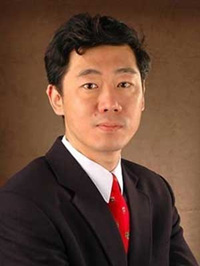China can make World Bank truly global
- By Li Daokui
 0 Comment(s)
0 Comment(s) Print
Print E-mail China.org.cn, March 29, 2012
E-mail China.org.cn, March 29, 2012
 |
|
Li Daokui is a professor at Tsinghua University and former adviser to the Central Bank. |
We live in rapidly changing times. China is now the center of global growth and developing countries now account for a greater proportion of the global economy than developed countries. As developing countries are now both the engines driving global growth and the World Bank's customers, the time has surely come to end the U.S. monopoly of the World Bank leadership.
The position should go to the person best qualified to discharge its functions, irrespective of nationality. At the same time, prospective candidates' backgrounds should be the most important factor in deciding their suitability for the role. For instance, if a candidate's life and career have been spent in developed countries, how can he or she understand the problems in developing countries and regions? By contrast, a candidate from a country such as China, which has undergone an astonishing transformation from poverty to economic superpower, should have an in-depth understanding of the challenges posed by poverty and development.
China should, therefore, put forward a candidate for the position of World Bank President. Such a candidate would surely prove beneficial to the group of developing countries. China's development over the past three decades is nothing short of an economic miracle. Its rapid growth has inspired and given hope to other developing countries, whose people are now asking: "Why can't we achieve what China has achieved?" China's experience of development can be an important point of reference for such countries.
There are two aspects to this experience. The first relates to development itself. Every country must develop its economy to resolve problems related to such issues as social development and politics. Economic development is driven by investment, which is why Deng Xiaoping emphasized the importance of putting economic construction at the top of the agenda.
However, economists and politicians from developed countries usually have flawed ideas about this issue, as they believe that development can only be achieved within the correct system. But their so-called advanced system is just a copy of that which operates the developed countries. They ignored the fundamental truth that the system they praise is a work of more than 100 years of evolution, which took time to become advanced. They also fail to recognize that political reform and progress, the perfection of the economic system and the resolution of social problems can only be achieved once we have economic development in the first place.
The second aspect relates to continuous, gradual reform. China's experience has shown that in any phase of development, we must first address the systemic bottleneck which curtails economic development. After we have done so, we are then in a position to develop reforms accordingly.
For example, in 1978, the biggest problem was food. To deal with the issue, China adopted the household responsibility system to break up the over-centralized system in rural areas, and also raised food prices. Both of these policies boosted agricultural productivity, and solved the problem of feeding China’s population of 1.1 billion people.
Then, at the end of the 1990s, the systemic bottleneck revolved around the questions of how to further develop the market economy and get rid of the annual evaluation of the most-favored-nation treatment. The answer to these questions came in the form of China joining the World Trade Organization (WTO) which led to the country's increasing global openness.
One caveat is that China has not yet constructed an accurate and mature economic development model. It is still under construction. However, other countries will still learn from both China's model and its experience. A Chinese president of the World Bank would be in a position to directly transmit China's valuable experience to developing countries, which will result in a more widespread acceptance of the Chinese model. As a result, China's influence on international economic and political affairs will grow, and this is crucial to China's future global status.
All of this is not mere conjecture, as in Dr Justin Yifu Lin, China now possesses a suitable candidate for this important role. Lin's credentials are first-rate. He has served admirably as chief economist and senior vice president of the World Bank for four years. He knows China well, has a solid academic background and managerial experience within the World Bank.
Any Chinese candidate would, however, face obstacles, especially in a year which sees U.S presidential elections. But we can learn from the experience of bidding for the Beijing Olympic Games. We can only succeed through tireless efforts. Setbacks and difficulties should not be an excuse for not trying at all.
(This article was first published in Chinese and translated by Li Shen.)
Opinion articles reflect the views of their authors, not necessarily those of China.org.cn.






Go to Forum >>0 Comment(s)